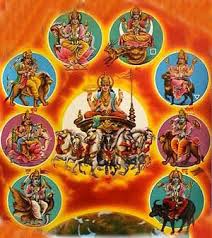

reviews [0]
Vedic Astrology is the ancient astrology. It is said to have been intuitively perceived thousands of years ago by Rishis who developed the various techniques of meditation and yoga. It is called "Jyotish", which means "the light", because it is used to illumine the life, providing both practical and spiritual insight.
The Veda
The term Vedic comes from the word Veda, which literally means knowledge. True knowledge is said to be transcendental, and the real experience of "the Veda" can only be directly perceived by the enlightened mind. Out of compassion for mankind, however, ancient seers composed four sets of hymns called the Vedas, which are expressions of various aspects of knowledge such as philosophy, yoga, meditation, healing, and other sciences.
They are designed to help humanity in the quest for happiness, peace and fulfillment. Jyotish, which technically is a Vedanga or limb of the Vedas, is considered to be "the eye of the Veda", the science which helps one see the life path. It is the mother of all other sciences.
The Four Aims of Life
The ancient seers who developed Jyotish possessed deep wisdom, but they were also very practical. They sought to solve the age-old problem of human suffering by providing tools such as yoga, meditation, Ayurveda and Vedic Astrology, which assist men and women in their quests for happiness and fulfillment. Ultimately, all of these tools aim at producing enlightenment, a state of consciousness characterized by infinite bliss, unbounded awareness, deep abiding peace and freedom.
Shastras outlined four worthwhile aims of life, dharma (law, duty or purpose) artha (material wealth) kama (desire, pleasure, affection, emotion) and moksha (liberation or spiritual freedom).
They designed Jyotish as a tool that helps a person achieve all of these aims so that life, in both spiritual and material aspects, can be a joyous event culminating in enlightenment.











